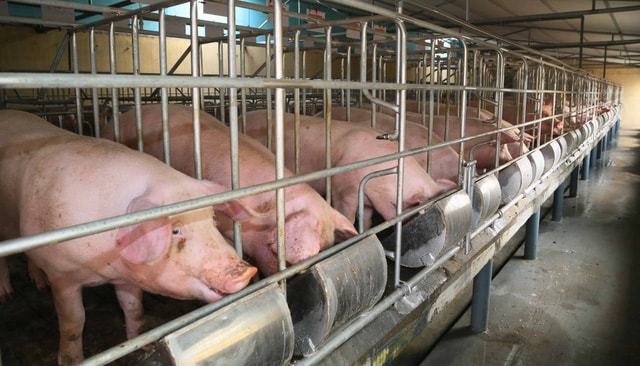From 2018, the use of antibiotics in livestock and aquaculture is banned.
According to Deputy Minister of Agriculture and Rural Development Vu Van Tam, the roadmap to 2020 will completely stop the use of antibiotics in livestock and aquaculture..
 |
| Illustration photo. Source Internet |
This afternoon, August 2, in Hanoi, the Ministry of Agriculture and Rural Development held a conference to deploy the national action plan on antibiotic management and use, and prevention of antibiotic resistance in livestock and aquaculture, with the support of the Food and Agriculture Organization of the United Nations (FAO).
According to Deputy Minister of Agriculture and Rural Development Vu Van Tam, antibiotic resistance is currently a new and pressing problem, threatening the health of hundreds of thousands of people when the body has antibiotic-resistant bacteria.
Meanwhile, antibiotics are not only abused in medical treatment but also widely used in animal husbandry, aquaculture and food production. Antibiotic residues from food entering the human body are a worrying issue.
Therefore, to implement the national action plan on antibiotic management and use, and prevention of antibiotic resistance in livestock and aquaculture, from the beginning of 2018, Vietnam will stop using antibiotics in food production (livestock and aquaculture), only allowing their use in breeding. However, the roadmap to 2020 will completely stop the use of antibiotics in livestock and aquaculture. To comply with this policy, the Ministry of Agriculture and Rural Development will soon propose to amend and promulgate a number of laws such as the Law on Animal Husbandry, the Law on Fisheries, the Law on Food Safety, etc.
Deputy Minister of Agriculture and Rural Development Vu Van Tam suggested that in order to effectively implement this plan, there needs to be active participation of agencies including the Ministry of Agriculture and Rural Development, the Ministry of Health, the Ministry of Industry and Trade, the Ministry of Natural Resources and Environment and the People's Committees of provinces and cities as well as calling for support, international cooperation, and the participation of research institutes... to reduce the use of antibiotics and prevent threats from antibiotic resistance.
The National Action Plan on Antimicrobial Resistance has five goals.
The first is to review, revise and implement regulations and policies related to antibiotic resistance and antibiotic use in livestock and aquaculture.
The second is to raise awareness about antibiotic use and the risk of antibiotic resistance.
Third is to do well in medical examination and treatment, animal feed and aquatic feed production.
Fourth is to monitor the use of antibiotics, antibiotic residues and antibiotic resistance in livestock and aquaculture.
Finally, facilitate cross-sectoral collaboration on antimicrobial resistance management.
According to SGGP



